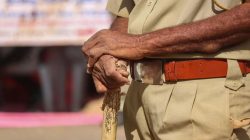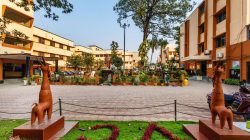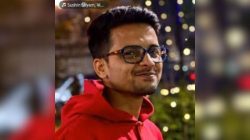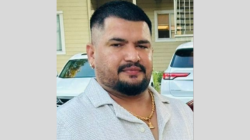Empowering Youth Through Recognition of Prior Learning
In the Jua Kali sector, a growing number of young people are actively seeking Recognition of Prior Learning (RPL) certificates to enhance their employability and secure better opportunities in the job market. This initiative is part of a broader government effort aimed at recognizing and formalizing the skills of informal sector workers, many of whom have been contributing significantly to the economy without formal acknowledgment.
The government has established a dedicated center at the Eldoret National Polytechnic (TENP) to oversee the RPL program. This center is designed to support over 15 million artisans across the country, with a particular focus on youth who possess valuable but unrecognized skills. The goal is to equip these individuals with the necessary training and resources to obtain RPL certification, which can serve as a credible alternative to traditional educational qualifications.
Stanley Maindi, the director of the RPL delivery unit, emphasized that the program aims to ensure that young people and skilled artisans receive formal recognition for their expertise. He highlighted that many youths in the informal sector play a crucial role in driving the economy through their craftsmanship and trades, yet they often remain invisible in formal systems.
“Under the RPL program, the certificates issued will be just as valuable as those from educational institutions,” Maindi stated. He added that certified youths could benefit from various government initiatives, including participation in projects like the affordable housing program. Furthermore, these certifications could open doors for them to pursue further education through Technical and Vocational Education and Training (TVET) institutions.
To ensure the success of the program, the government has trained experts under the RPL Practitioners Level 2 program. These professionals are equipped with the knowledge and skills needed to assess and certify eligible youth. Maindi noted that all TVET institutions will act as certification centers for RPL, creating a widespread network of support.
The center at Eldoret Polytechnic serves as a central hub for coordinating the RPL program. It will also be responsible for collecting and storing data related to the initiative, ensuring transparency and efficiency in its implementation.
Maindi stressed that the program is inclusive and does not discriminate based on age or background. “This program is meant to ensure easy access to certification for all those with skills, including the mama mboga, and age does not matter,” he said. This inclusivity is a key aspect of the initiative, as it recognizes the diverse range of skills present within the community.
The assessment process for youth will cost Sh5,000, but the exact cost may vary depending on the level of certification required. Additionally, the government is collaborating with international donors such as the World Bank, which is providing financial support to help fund the certification process for interested individuals.
Charles Koech, the chief principal of TENP, highlighted the institution’s commitment to working closely with the Jua Kali sector to ensure that more young people receive their RPL certifications. This collaboration is essential in bridging the gap between informal skills and formal recognition.
Obudho Omondi, chairman of TENP’s Governing Council, encouraged Kenyans to take advantage of the newly opened RPL center. He emphasized the importance of this initiative in empowering the youth and promoting economic growth through skill development.
Through the RPL program, the government is making significant strides in acknowledging the contributions of informal sector workers and providing them with the tools they need to succeed. This initiative represents a step toward a more inclusive and equitable labor market, where skills are valued and recognized regardless of formal education.







